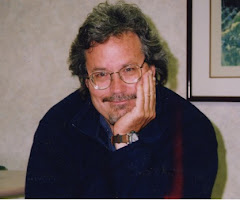This one, JEWS AS THE ROMANS SAW THEM, by Robert Louis Wilken, reviews a book by Martin Goodman entitled ROME AND JERUSALEM, THE CLASH OF ANCIENT CIVILIZATIONS , in the latest issue of First Things.
It occurs to me that as inheritors of western Christian civilisation, we also inherit this "clash" that took place a few millenium ago. It was in the crucible of Roman occupied Jerusalem that Jesus Christ was slain, after undergoing a hearing carried out by a Roman proconsul goaded on by a Jewish mob.
This is the strange past that we are a part of; we can't escape it. Can we learn anything from it?
Wilken has this to say:
"Romans and Jews had different conceptions of what the state is for. For the Romans, the state was res publica, public business, a coming together of people united for common good, with freedom for political activity. But, for the Jews, 'neither individual liberty nor the popular mandate of a majority vote carried the same weight' as it did for the Greeks and Romans. The Jews had no formal public assemblies to match those of Rome. 'Our lawgiver,' wrote Josephus, was 'not attracted to these forms of polity' but 'places of sovereignty and authority in the hands of God.'"In America, we are about balancing these two ideas of public life. While Luther was careful to rightly divide public life into two kingdoms, he also carefully noted that both kingdoms--the kingdom of heaven and the kingdom of the world--were under the Creator's divine jurisdiction and jurisprudence. Modern America seems to have been headed toward the Roman way of understanding "public business" i.e, no religion in the public square. That's for the private lives of its citizens if they so choose. Freedom from religion seems to be a trend.
Of course, American Christianity, such as it is, doesn't generally acknowledge an idea of two kingdoms as a way of understanding how to be in the world but not of the world.
Nevertheless. Christianity has a way of pushing back just when you think it is dead. Christians as individuals in vocation have time and again brought faith and the moral law back into the public square, where it is always an uninvited guest.
Wilken's essay points out that, for a time, the relationship between Jews and Romans reached a kind of equilibrium. The Jews were ferocious for their religious beliefs and practices, and the Roman rulers learned eventually to set aside the set of standards they imposed upon those they conquered, allowing the Jews to worship their God in their single temple, and not imposing the worship of the Roman gods upon them. In so doing, it helped keep the peace--Constantine's great agenda--and made the Jews a kind of "society within a society", a characteristic they have always maintained as long as they remained "religious".
But this was always an uneasy truce, and did not last. By the time of Christ, the hardest job in the empire was being a Roman ruler of the Jews. Pilate had no end of trouble, and the mess the various Herods made of things predates but matches anything the Grimm brothers (or even the Coen brothers!) ever came up with. The uneasy truce between Roman conquerer and Jewish subject was broken many times, culminating perhaps in the destruction of Jerusalem in 70 A.D., and the years following that.
Well, many a year has gone by. The ancient clash may just be a dim memory and have no bearing after two thousand years. Nevertheless, I think we aren't as far away from the conflicts in culture and beliefs that consumed the ancient Jews and Romans as we may think. The culture and values of Americans today is seeming more and more like that of ancient Rome. I feel that slow, inevitable slide into ostrogothic post-empire creeping up on us.
But I could be wrong.



No comments:
Post a Comment